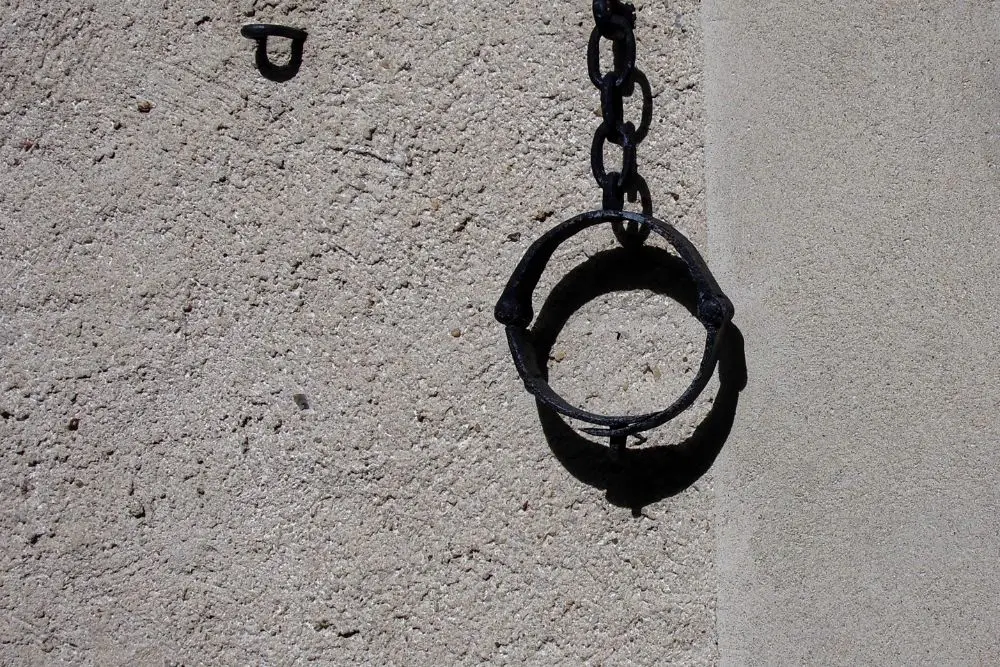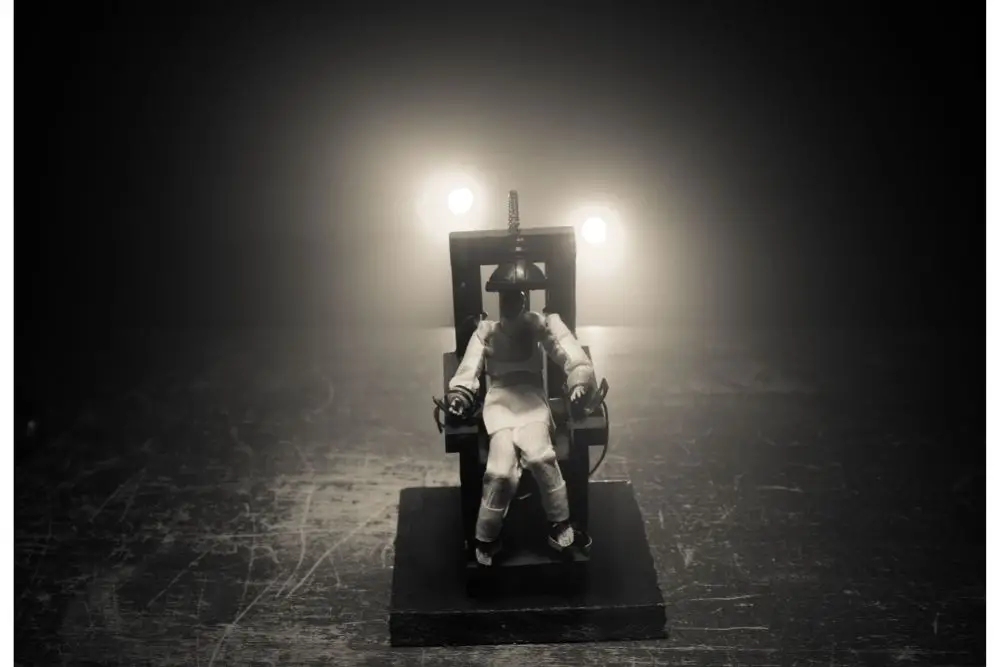Last Updated on May 21, 2022 by Fair Punishment Team
The death penalty is a very controversial topic, with a lot of states and countries over the world abolishing the death penalty. It is also referred to as capital punishment, where a person is killed as a punishment for their crimes. In this article, we will uncover if North Carolina still has the death penalty.
What Is The Death Penalty
The death penalty is also referred to as capital punishment. People are sentenced to death and executed by the state as a means of punishment for the crimes they have committed. The crimes you have committed have to be very serious to be considered to have the death penalty.
You’ll find repeat serious offenders are more likely to be given the death penalty. It does depend on the country what kind of offenses will be considered for the death penalty.
When someone is sentenced the death penalty, they then go and live on death row. However, criminals can spend years on death row, not knowing how much longer that they have left. They don’t know when it will be the last time that they see their families.
Crimes that are punished by the death penalty are known as capital crimes or capital offences. These crimes vary from country to country and state to state. However, the most common crimes include war crimes, mass murder, terrorism, genocide, treason and in some states drug dealing and trafficking.
Capital punishment refers to execution by beheading. Yet other methods have been used throughout the years from hanging, shooting and stoning. More common methods have included lethal injection and electrocution. The death penalty has a beginnings from Ancient Greece, but now 60% of the world still has the death penalty. While the other 40% of the world have abolished it.

North Carolina And The Death Penalty
The death penalty has been apart of North Carolina law since the state was a British colony. Hence the first known execution was the hanging of a native american man in 1726. Since 1910, the state of North Carolina has taken responsibility for executing criminals, in an effort to make the executions more humane and consistent.
More than 1000 criminals have been sent to North Carolina’s death row. The male and female prisons for death row offenders are both found in Raleigh. The male prisoners are sent to the Central prison, while the female offenders are sent to the North Carolina Correctional Institution for Women.
You will find that death row offenders will spend most of their time in their cell or an adjacent dayroom. Offenders may be sent to do jobs such as work in the canteen or in the clothes house. They are also allowed one hour a day to exercise and have a shower.
Offenders are allowed one visit a week, with the maximum of two visitors. They can see and talk to one another but they aren’t allowed to physically touch one another. If an offender breaks any of the prison rules, they are placed into a segregation cell outside of the death row area. They are separated from anyone and contained in their cell all together.
Once an offender has run out appeals, the attorney general will ask the Secretary of the Department of Public Safety to set a date for execution. Once this is all arranged the offender is then moved onto the death watch area.
They are typically moved around three days to a week before their execution date. The death watch area is next to the execution chamber. There are typically four cells in the death watch area.
Once the offender has been moved to the death watch area, they can no longer receive visits from their friends or family. They may only relieve visits from people authorized by the prison such as the attorney or chaplain.
When Was The Last Execution Carried Out In North Carolina
North Carolina is the nation’s sixth largest death row. The method of execution that is used is lethal injection. On death row right now there are around 140 inmates. Wayne Laws, from Davidson Country is the longest serving offender on the death row.
He was sentenced to death in 1985. Several inmates have been on death row since the early 1990s, but no others have been sentenced before 1990, apart from Wayne Laws.
The last execution took place in 2006. Since then several issues have been raised regarding the death penalty in North Carolina, which has halted anymore taking place.

The Eighth Amendment
Inmates claimed alongside inmates across the country, that the lethal injection that is being used goes against the Eighth Amendment. Inmates believed that the drugs given could cause severe pain before death, which went against this amendment. However this challenge was overruled by the Supreme Court, who rejected the challenge.
North Carolina Medical Board
Another factor that halted executions taking place, is that the North Carolina Medical Board announced that doctors couldn’t participate in executions. Ethically it goes against their code. They can certify the inmate’s death, but not actually give the inmate the injection.
A federal district judge then ruled that the Eighth Amendment concerns might come into play if a doctor didn’t monitor the inmate while they were being executed. This then led to the Department of Correction suing. As they believed that the medical board overstepped the line and were undermining state law.
The North Carolina Innocence Inquiry Commission
The North Carolina Innocence Inquiry Commission is the first of its kind in the whole of America. It was created in 2006 and started operating in 2007. The commission has reviewed hundreds of claims from inmates who say that they are actually innocent. Which then causes multiple hearings to take place per claim.
This commission is a unique process, but it has helped inmates who are on death row for the wrong reasons. In 2010, Gregory Taylor was the first person to have his charges reversed as he was declared to be innocent by a panel of three judges.
This was after serving 17 years for a murder he did not commit. Death row inmates have had luck with this process, if they have been wrongly charged for a crime they did not commit.
Conclusion
North Carolina does in fact still have the death penalty. It is still legal, yet the last execution was performed over 15 years ago in 2006. The death penalty is still a very controvsal subject, but it is still around in most states. It serves as a punishment for those who have committed the worst crimes.
North Carolina has the sixth biggest death row in the country, yet it hasn’t performed any executions for a long time. This is due to many reasons as we have explained above. Yet also the death penalty is final, so it does take a long time for the right conclusions to be met. The worst thing that could happen is someone to be executed and then evidence is found that they are innocent.
More countries and state are abolishing the death penalty every year. Therefore, we cannot be sure for how much longer the death penalty will remain legal in North Carolina. Especially, as fewer and fewer executions are being performed.

